Historical Solo Sojourn: Roaming the Ruins of Hampi and Beyond
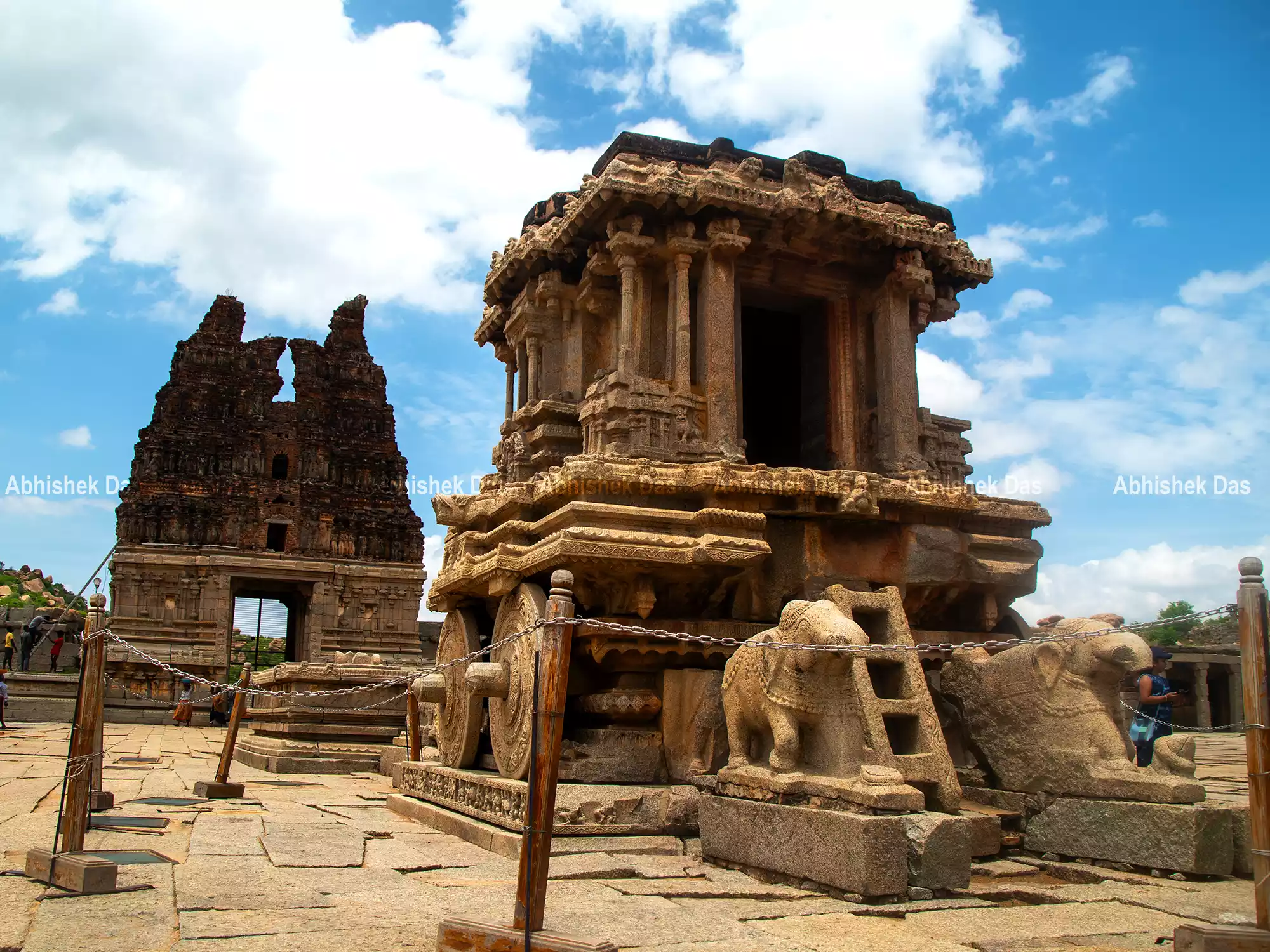
Do historical sites excite you? Do ancient architectural marvels leave you spellbound? Then you could not have missed coming across the name of Hampi.
The mighty Vijayanagar Empire had Hampi as its capital, and Hampi’s ruins still showcase the empire’s architectural brilliance. Hampi is known for its numerous palaces, structures, and temples like Virupaksha Temple, Vitalla Temple, and Hazara Temple are famous for their intricate carvings and impressive design.
A weekend solo trip to Hampi can be an opportunity to explore oneself while exploring the place’s rich history. Most of the time traveling solo leads to a rich and authentic cultural experience of the travel destination. Being in an unfamiliar place with non-familiar people encourages self-reflection and introspection. Apart from the ease of planning, a successful solo travel experience leaves a sense of empowerment.
Join us in this article as we take a deep dive into the historical importance of Hampi, its impressive architectural and engineering knowledge and its beautiful landscape. Walk through the beautiful location in the surrounding region of Hampi. Also, covered in this article is solo travel and its impact on one’s personality and some safety tips for travelling alone in and around Hampi.
Historical Background of Hampi
Introduction to the Vijayanagar Empire
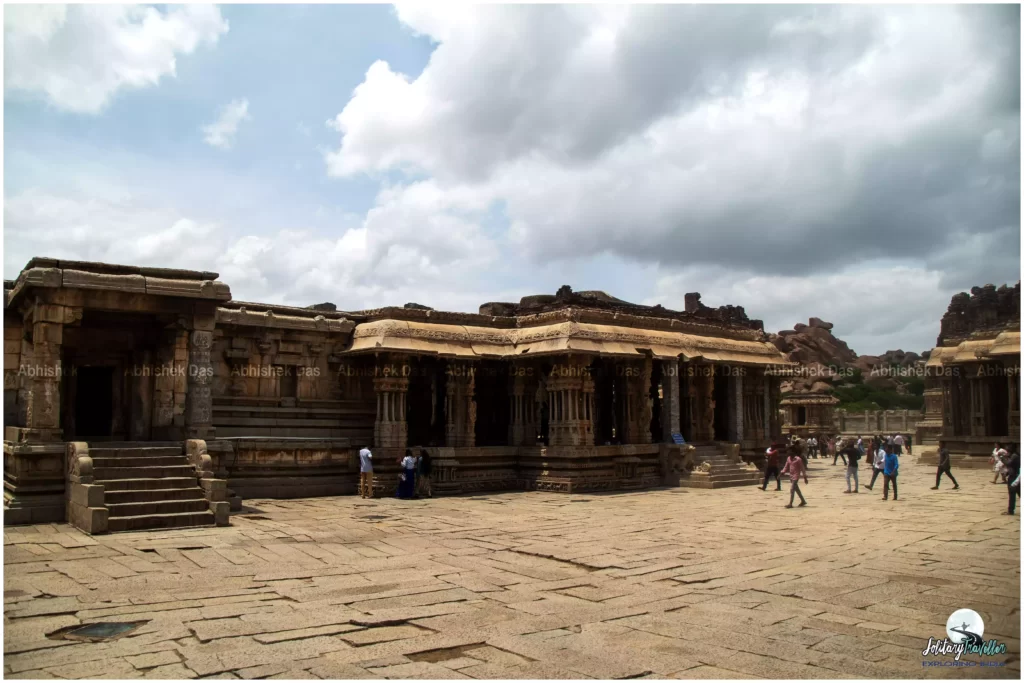
Vijayanagar Empire was the most prosperous empire from the 14th to 17th centuries. The empire established its capital at Hampi (present-day Karnataka), on the banks of river Tungabhadra. At some point in its glorious history, the Vijayanagar Empire was widespread throughout major parts of South India including present-day Karnataka, Andhra Pradesh, Telangana, and Tamil Nadu. It also made its influence in regions of present-day Kerela, Maharashtra, and Orrisa.
Major historical landmarks of Hampi
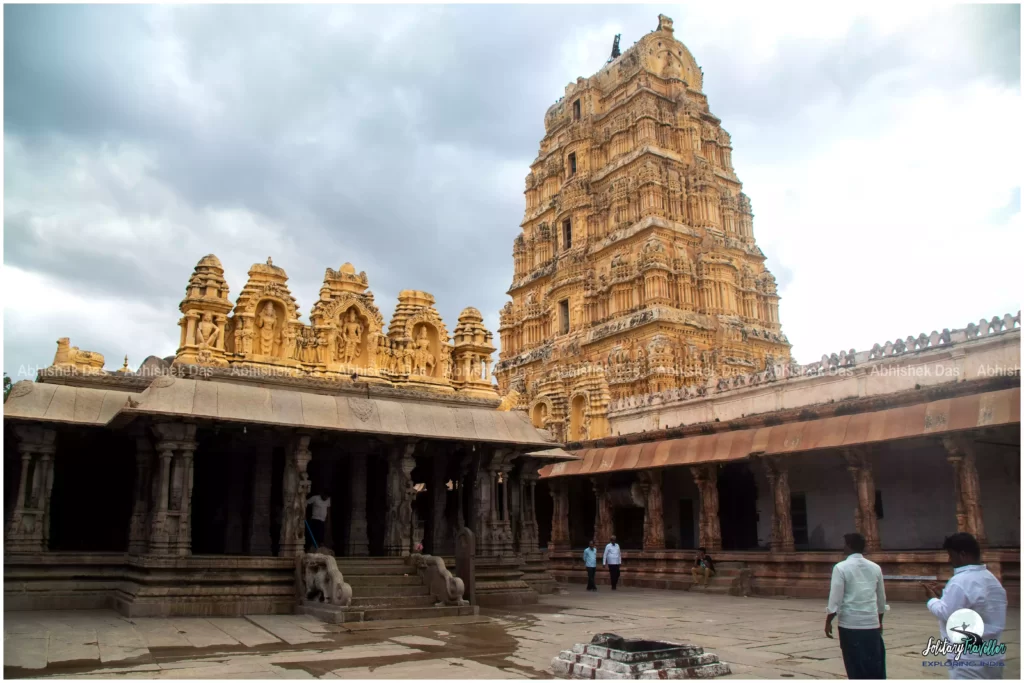
Hampi has been rendered the status of a UNESCO World Heritage Site owing to its stunning ruins, intricate architecture, and rich history. One of the oldest structures in Hampi is the Virupaksha temple, dedicated to Lord Shiva. Vijayanagar Empire’s impressive architectural achievements can be seen in the stone chariot and musical pillars of the Vithalla temple. Built by King Acyuta Deva Raya, the Acyutaraya temple is known for its architecture and carvings. The Hazara Rama temple is known for its elaborate bas-reliefs, depicting scenes from the Ramayana.
Elephant Stables and Lotus Mahal uniquely blend Islamic and Hindu architectural prowess. Elephant stables were once used to house the Royal Elephants of the Vijayanagar Empire whereas Lotus Mahal served as a pleasure place for the Royal Women. The Queen’s bath, used by the Royal Women, not only showed the Empire’s architectural skills but also its advanced engineering skills. The bustling commercial life of the empire is reflected through the row of pavilions at Hampi Bazaar.
You may also like: Travelling Solo to Karnataka: Best Places to Visit
The significance of Hampi’s ruins in Indian history and culture
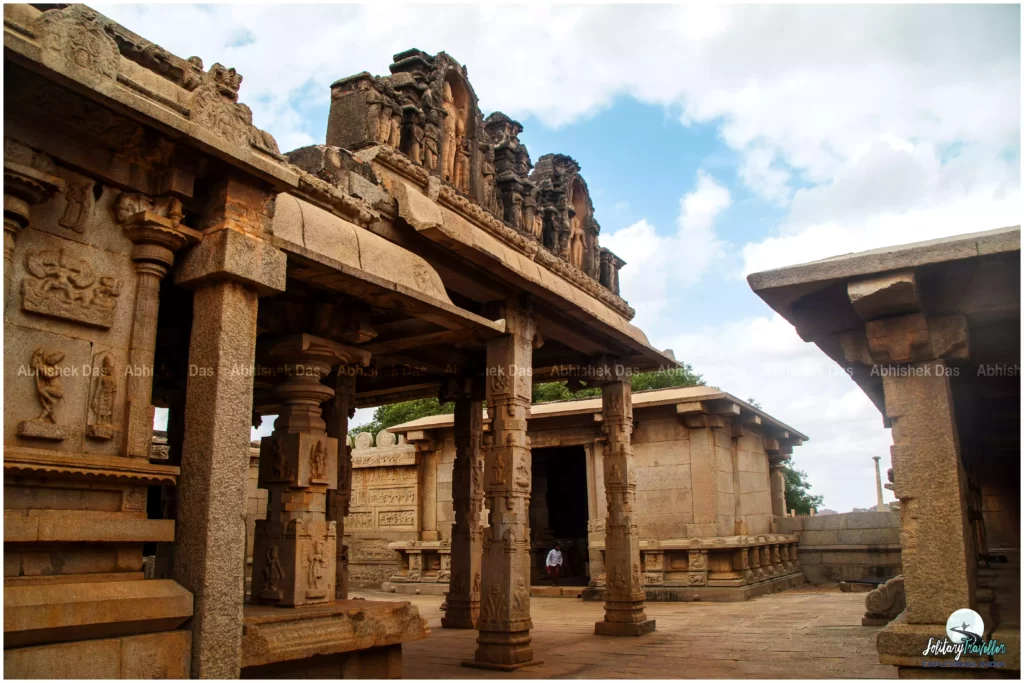
Indian History owes a lot to the ruins of Hampi. The Vijayanagar Empire constitutes a major portion of Indian History and Hampi being their capital, helped a lot to understand the brilliance of the empire in many fields like architecture, engineering, and military. The place also gives an insight into the Islamic and Hindu cultural fusion that shaped the Vijayanagar Empire. Hampi’s ruins provide an insight into the political, social, and economic dynamics of medieval South India. Hampi’s findings are mentioned in various historical texts like writings of foreign travellers such as Domingo Paes and Abdur Razzak and offer accounts of life in the great empire.
Exploring Hampi: Solo Adventures Amidst the Ruins
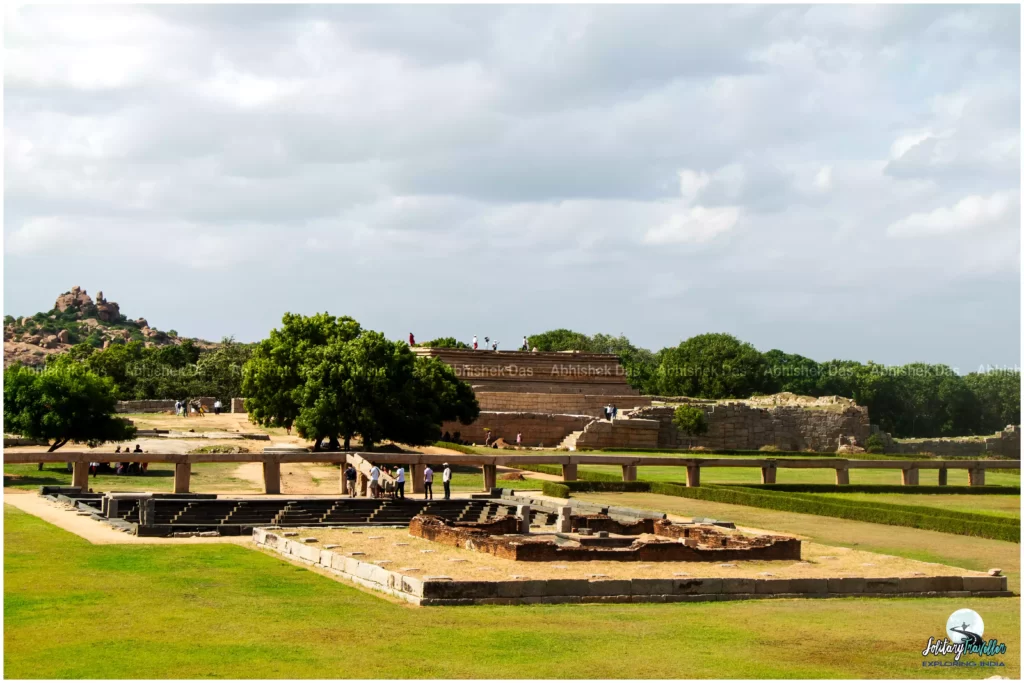
Day-wise itinerary for exploring Hampi’s Major Attraction
Day -1
The first day should be spent exploring the sacred centre and royal enclosure. The day can start by exploring the Virupaksha temple and witnessing the morning rituals, followed by a stroll through Hampi Bazaar and getting hold of some souvenirs and local crafts.
Later in the day, a climb up Hemakuta Hills will give a panoramic view of the surrounding landscape, and also a visit can be made to the ancient temples and ruins atop the hills. A visit to the Krishna Temple complex will be impressive as it has carvings and sculptures depicting Hindu culture.
The day can end by witnessing the breathtaking sunset at the Matanga Hills.
Day-2
The day should start amongst the musical pillars and stone chariots at Vithalla Temple Complex. Nearby attractions like King’s Balance and Underground Temple should also be explored.
The afternoon can be spent at Anegundi Village, believed to be the former Kishkinda. The village has ancient temples caves and Anjaneya Hill, where Hanuman was said to be born.
The day can end with a scenic coracle ride on the Tungabhadra River.
You may also like: Exploring The Temple City- Madurai
Solo travel experiences and tips for navigating Hampi’s ruins
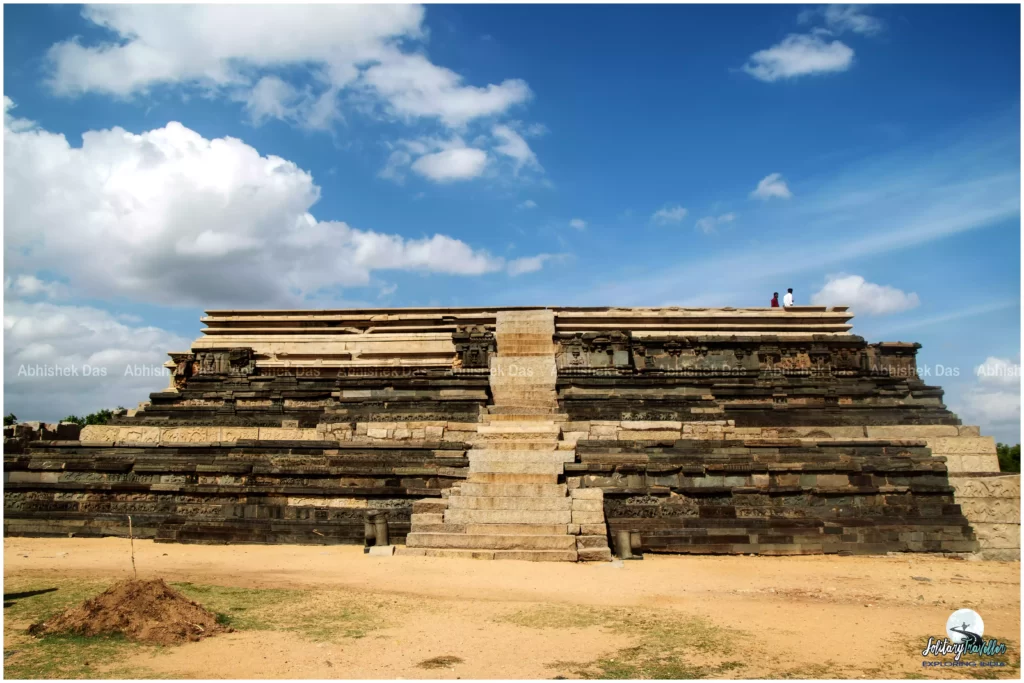
Hampi can be experienced better with a brief understanding of the history of the place and thus, reading a little about the same would help a lot. The area can get very hot during the day and therefore, early mornings and late afternoons are the best time to explore the place. Hampi’s terrain is uneven and rocky and uncomfortable footwear can make the journey difficult. To experience Hampi in its entirety, venturing off the main tourist trail can lead to some unexplored gems. While traveling it is advised to take care of the pious nature of temples and other norms of the local culture.
Lesser-known gems and offbeat spots in Hampi
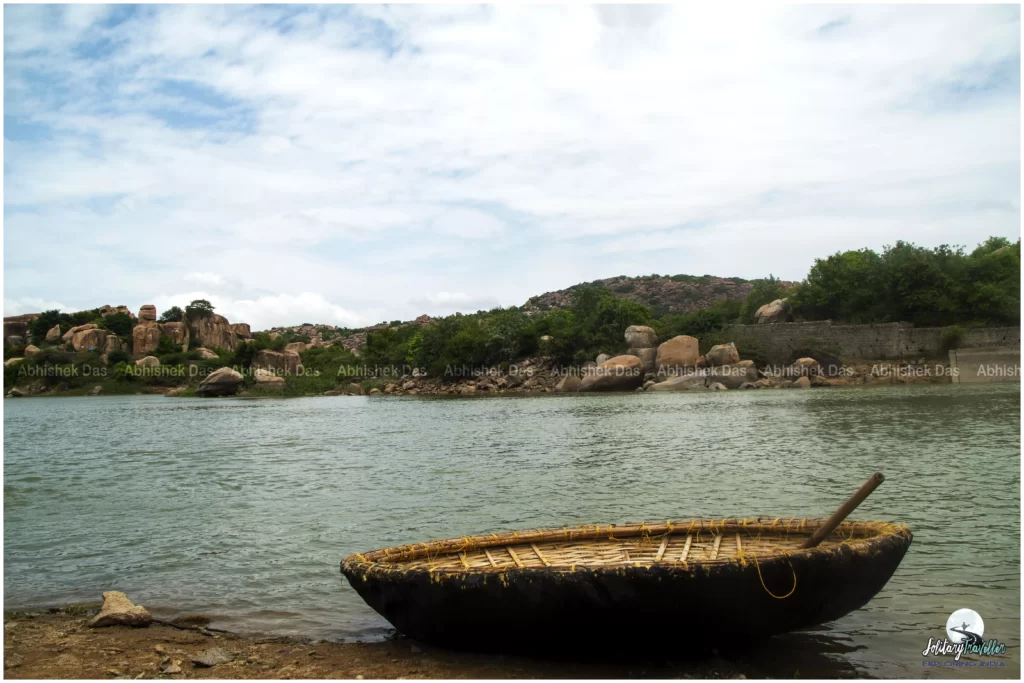
Hampi is an important place not only from a historical point of view but also from a religious point of view. It embraces within itself many places that are not visited by many. Malyavanta Raghunath Temple near Hampi Bazaar is dedicated to Lord Rama and is not visited as often as other places in Hampi. Sasivekalu Ganesha and Kadalekulu Ganesha are two monolithic statues of Ganesha located at Hemakuta Hill. Pampa Sarovar is a lake where Goddess Parvati is believed to have performed penance to win Lord Shiva’s heart.
Hippie Island or Virupapura Gadde is another hidden gem for laid back vibe and beautiful sunsets. Virupapur Gaddi Beach can be perfect for someone missing the vibe of a beach. One can visit the Sanapur Lake for swimming and relaxing.
Beyond Hampi: Historical Excursions in the Surrounding Area
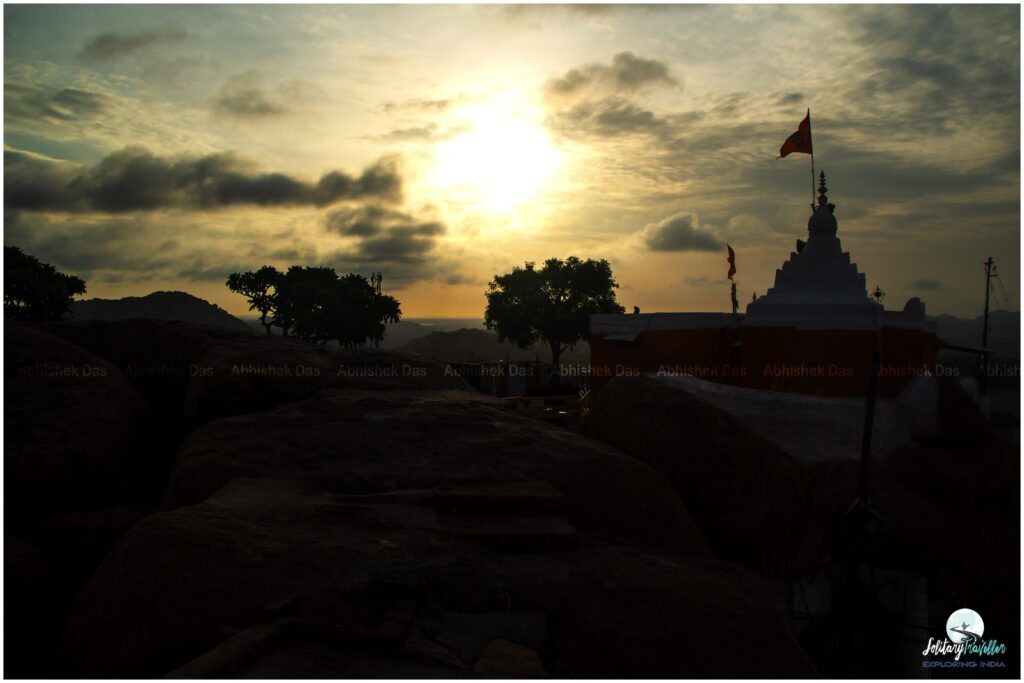
Hampi itself is a treasure trove of historical wonders. Still, the surroundings like Badami, known for its rock-cut temples, and Aihole, known as the “cradle of Indian architecture” are just a few kilometres away from Hampi. Kudalasangama is located near the confluence of the Krishna and Malaprabha rivers and is associated with Basavanna, the founder of the Lingayat sect. Similarly, places like Pattadakal, Gajendragad Fort, Hospet, and Huligemma Temple are worth travelling some extra miles for.
You may also like: Affordable Solo Adventures: 10 Budget-Friendly Travel Ideas Across India
Immersive Experiences: Engaging with Hampi’s History and Culture
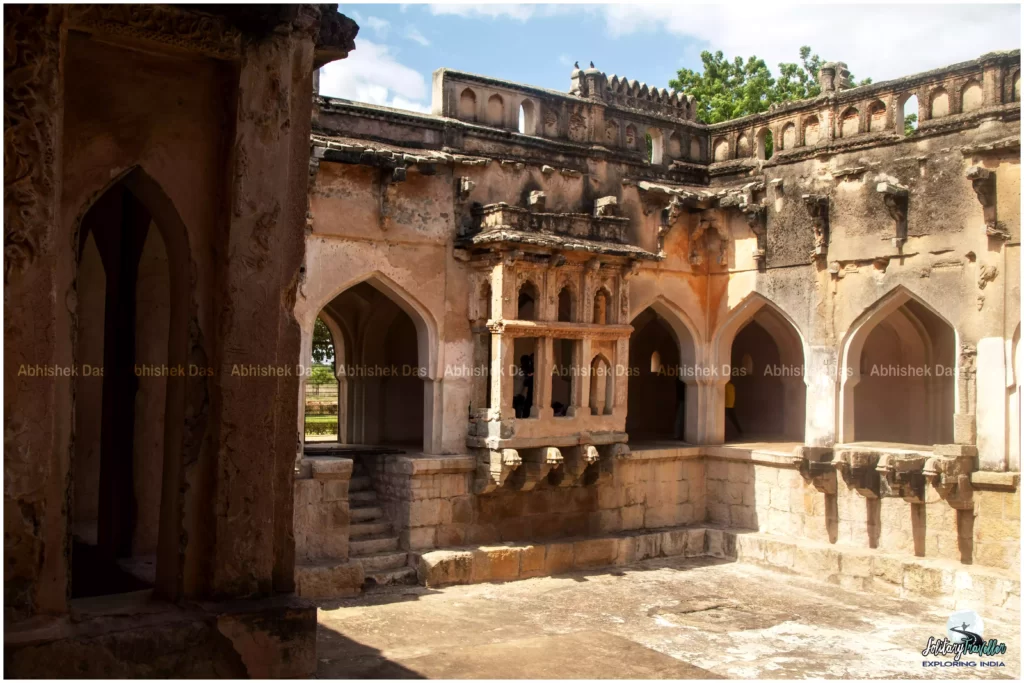
A solo traveller will find enormous opportunities to get a more immersive experience of Hampi’s history and culture. A solo traveller can easily participate in heritage walks or guided tours. They usually find an opportunity to interact with locals, learn about the region’s history, and experience cultural events or festivals in and around Hampi.
Safety Tips and Advice for Solo Travelers in Hampi
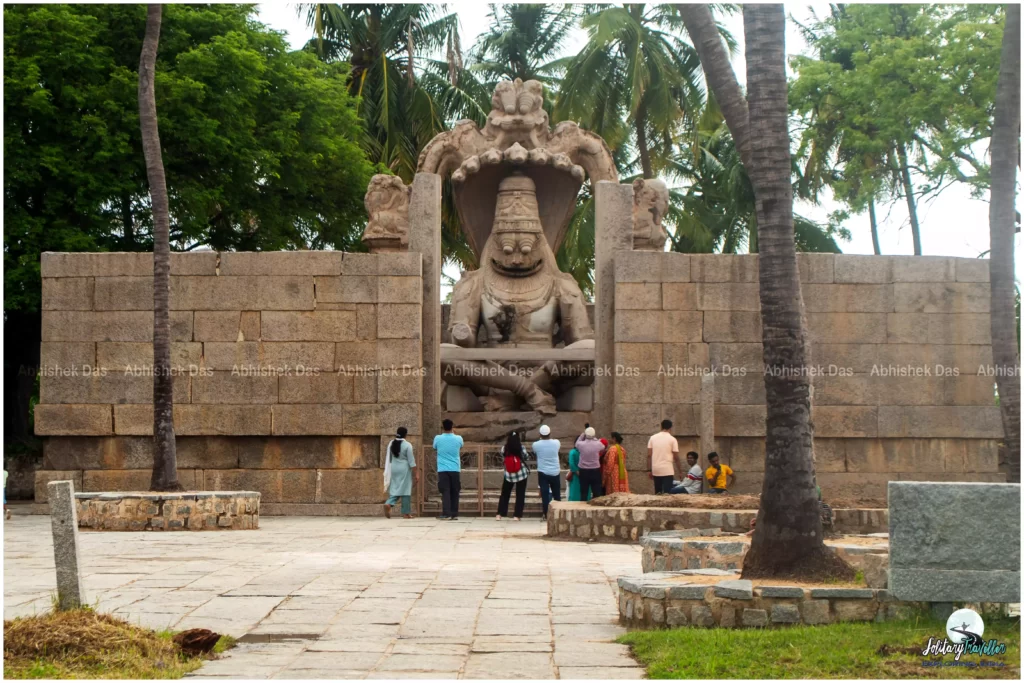
Hampi is safe for visitors but taking certain safety precautions can make solo travelling worry-free and even more memorable. Familiarizing oneself with the history and cultural background of the place can make travel plans easy. It is always better to rely on reputable transportation like registered taxis and auto rickshaws for travelling. Travelling with only essentials and leaving expensive items behind is a smart thing to do. Hampi is known for its monkey population and one must maintain distance from them, especially when carrying food in hand. Apart from that, staying hydrated while travelling is a must, and informing someone about the itinerary or any change of plans is important to ensure safety.
You may also like: 10 Famous Museums in India for Every History Buffs
Capturing Memories: Photography Tips for Hampi’s Ruins and Beyond
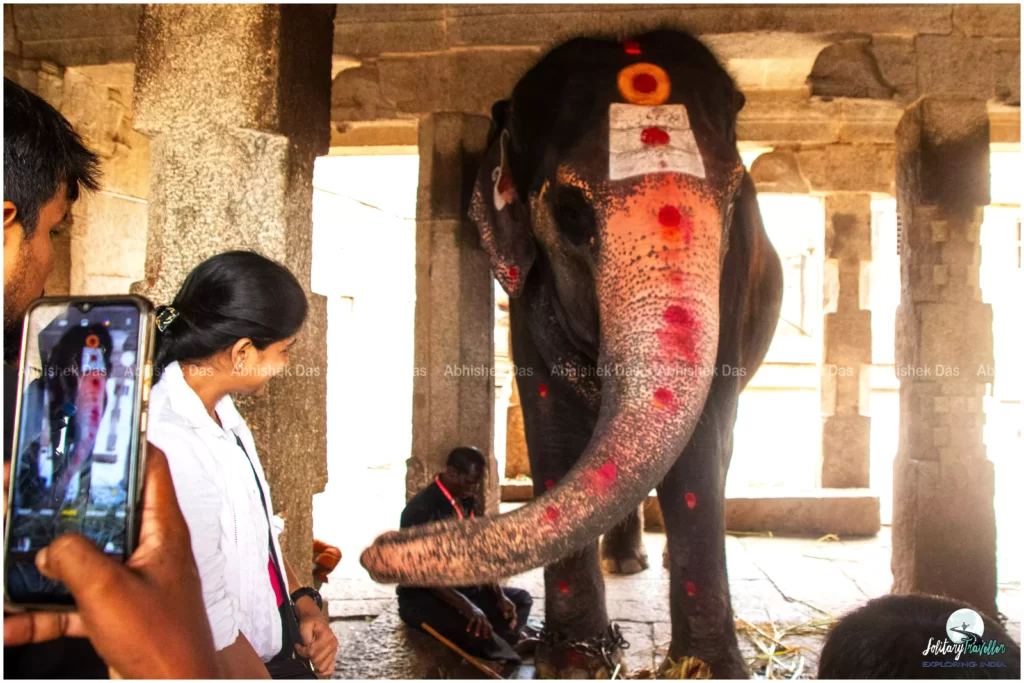
Hampi is a photographer’s dream owing to its ruins and landscapes. A photographer can make optimum use of the Golden hours for natural lights and capture the details of carvings, architecture, and textures in the temples and the ancient structures. Elements like pathways, walls, or columns can be used as pathways to create leading lines to draw the viewer’s eyes. There are opportunities to experiment with Silhouettes and Long Exposures. The goal should be to tell the story of Hampi over time by capturing ancient and modern elements. Carrying a tripod can be useful for stable shots and a zoom lens can give magical results.
Reflections on the Solo Sojourn: Personal Experiences and Insights
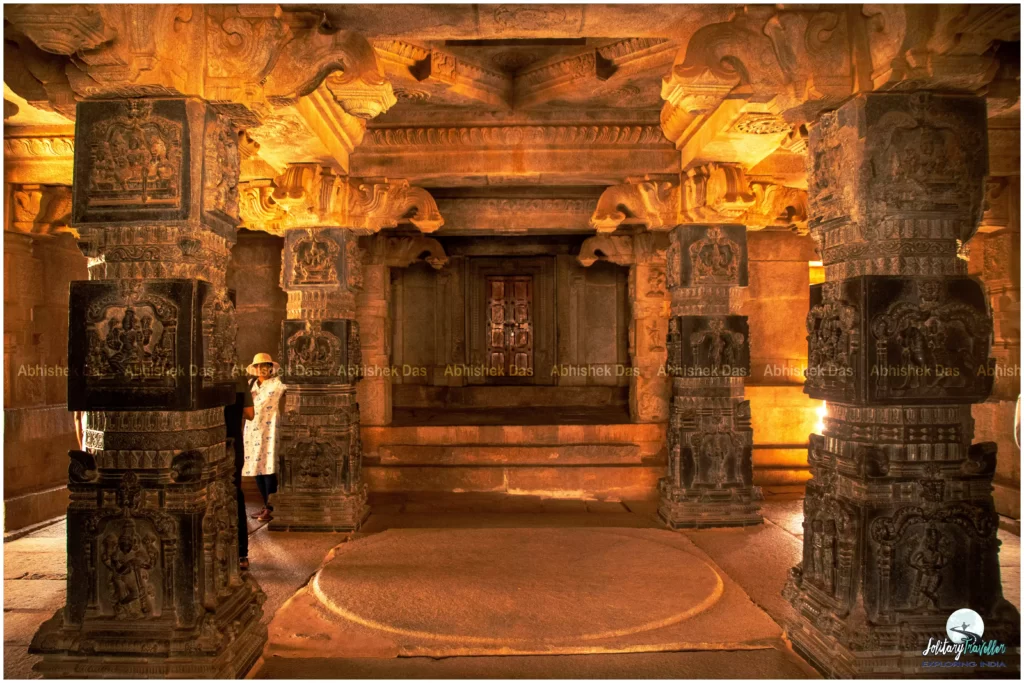
My solo journey to Hampi was an experience that transformed me and left me with a newfound appreciation for beauty. It gave me a sense of freedom and opportunity for self-discovery through cultural immersion. I gained a lot of confidence by overcoming challenges and got a renewed perspective on my heart and mind and I would suggest everyone experience all of it once in their lifetime.
Visit Now
Hampi’s historical significance, architectural beauty, and scenic landscape inspire travellers to this date. It is a window to the majestic history of an Indian empire and its achievements in various fields. If you are reading this, you must plan a solo trip to unfold the magic of the enchanting destination before you. The journey will leave you inspired, rejuvenated, and ready to conquer the world.
Did you find this read interesting? Go through this exclusive first-hand account of an avid traveller who took a solo trip to the ancient trip to Hampi.




0 Comments